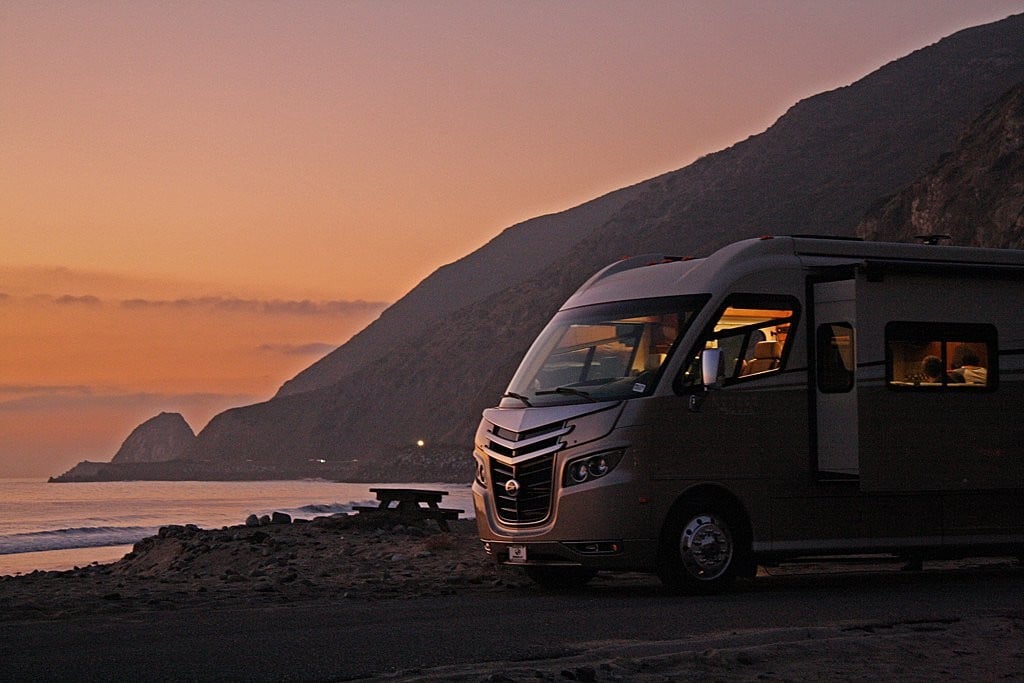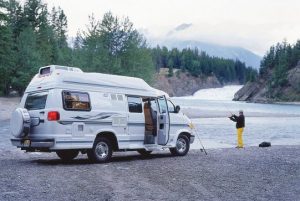If you’ve been dreaming about buying a new RV but aren’t ready to commit, RV rentals are a great way to test drive different models without the commitment of owning one–or the fear of buyer’s remorse.

A web search reveals a variety of RV rental arrangements. From private party RV rentals found in places like Craigslist, to national companies, RV renters have a choice of everything from Class B van conversions to luxury motor coaches.
And as you might have guessed, the range of rental costs is just as varied. Renting can be confusing and it’s easy to get trapped into a substandard arrangement, like this family accidentally discovered in Southern California.
Don’t let your RV rental turn into a vacation disaster. Remember these three quick tips for renting the best RV for your perfect getaway:
1. Choose the right RV size.
RV rental costs scale up the same way that car rentals do: the more luxury, size, and bells-and-whistles, the higher the price. This also corresponds with fuel prices too: the larger the machine, the poorer fuel economy you’ll experience.
If you’re a more down-to-earth, budget-minded camper who wants to get away from civilization and established campgrounds, consider a small van conversion rental (known as a “Class B” RV size).
These RVs can go just about anywhere and are very affordable to rent. But if your comfort level means a flat screen TV, chilled wine, a king sized bed and a porcelain toilet, then a more upscale Class A motorhome like this is going to make you happiest, but put a bigger dent in your travel budget.
You’ll also need to consider how many people will travel in the RV, and for how long. The larger the RV the more waste tank storage space you’ll have, which means fewer sewer dump pit stops.

2. Get the lowest rate.
No matter what type of RV rental you choose, entering into the rental contract is exactly like renting a passenger car: the low base rate will lure you in, but escalate in a hurry when you factor in daily costs on top of that, like fuel, mileage, and insurance.
Other factors that can raise a daily rate include any extra the rental agency may try to toss in, such as extra kitchen and bedroom linens, outdoor living accessories, and entertainment packages.
Don’t sign anything until you know exactly what you’re getting and for how much money. To keep costs down, rent during the “shoulder seasons” just before and just after summer, when the weather is getting better but families with kids are still tied down to school schedules.
3. Know exactly what’s covered.
RVs are homes that move, and even new rigs shake, rattle and roll until things come loose. Search online for renter reviews about the company you’re renting from, then find out what kind of breakdown coverage is included in your contract.
Who will come to your aid if roadside coverage is needed in the event of mechanical engine failure, house system meltdowns, or other unforeseen problems with your rental?
Will you be compensated for missed travel days? Can you get a refund if the RV is not repaired in a reasonable amount of time? Bring up these important questions before renting and you’ll have extra peace of mind when you hit the road.
Once you decide on a rental, keep good records of every interaction with the company. This iRV2 member did and here’s what happened when his RV rental turned into a disaster:
No matter who you rent from I would strongly recommend keeping really good records and closely reading the rental contract. Our rental started fine, but became a disaster, and I didn’t have any luck contesting the charge through my credit card company, as they viewed it as a quality of service dispute. I filed a complaint with BBB, and it took over a year, but I was eventually refunded 4 days of my 7 day rental fee by an arbitrator.
If you’re thinking about a RV rental, visit the iRV2 Discussion Forums to chat with others who might have feedback about the company.

My wife and I have been thinking about renting an RV for camping soon. I really like that you say to find out what’s covered beforehand. It would be nice to know that things will be covered should something go wrong.